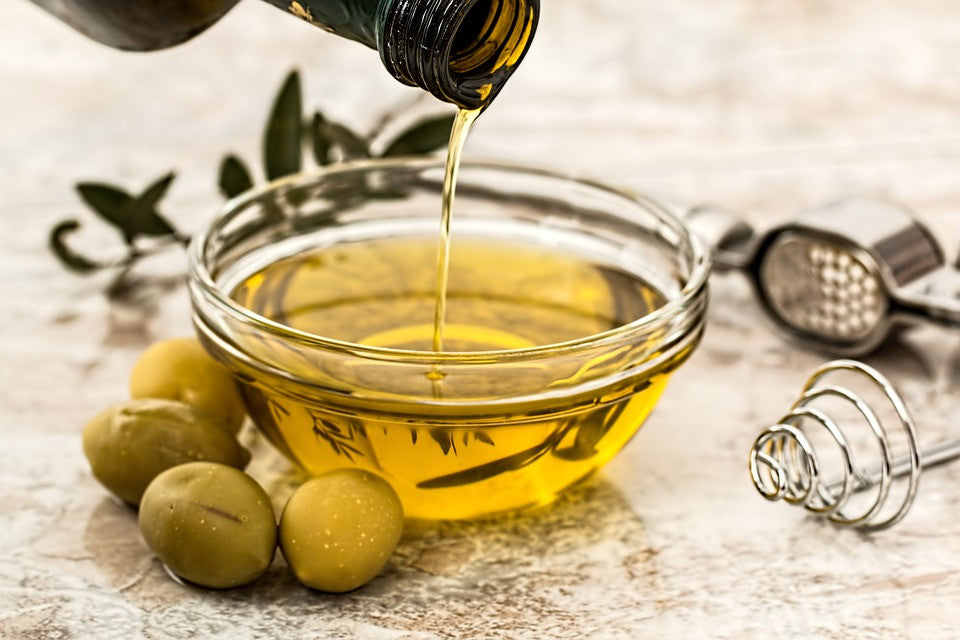Any home chef who's experimented with a vinaigrette knows the right oil can enhance or ruin a dish. For salads or garnishes for cold-cut veggies, an oil's weight and distinct taste might prevent the meal's natural flavors from emerging.
Likewise with cooking, each oil has distinct properties that give cooks many culinary options. Health-conscious eaters should check the types of fat and smoke points of their oils in order to optimize nutrients. Each oil has its own aromas and flavors, which your palate will notice when it's time to take a bite.
What Should You Look for in a Cooking Oil?
Cooking oils are often rich in polyunsaturated and monounsaturated fats. Oils are healthier than butter or lard, which are high in saturated fats, linked to heart disease and high cholesterol.
However, an oil pushed past its smoke point loses nutrients and flavor. While you can't change the type of fat in an oil by heating it, you can lose many of the health benefits you may be looking for. Keep in mind that sautés and stir-frys will heat your oil up to between 350 and 450 degrees Fahrenheit, so choose an oil with a smoke point beyond 400 degrees.
Olive Oil
There's a big difference between "light, pure" olive oil and extra-virgin olive oil. Extra virgin is the oil from pressed olives, rich in heart-healthy antioxidants called "polyphenols." However, this oil has a low smoke point of 325 degrees, so it's best to just drizzle it on your cooked veggies.
Light olive oil undergoes chemical treatment after extraction. It doesn't have the same polyphenols, but it has a much higher smoke point of 465 degrees. If you want to cook, you might choose light olive oil. To taste the oil's rich, buttery flavor in your fresh, green salad, choose extra-virgin oil.
Coconut Oil
Coconut oil is a relatively new addition to the cooking-oil canon. Although it's very high in saturated fat -- a whopping 90 percent versus 64 percent in butter according to the Harvard Health Letter -- it seems to raise levels of healthy cholesterol. While the jury may be out on whether coconut oil is healthy for regular consumption, it's great for roasting and dairy-free baking. Its smoke point is 350 degrees, giving a mild coconut flavor.
Corn Oil
Most commercial kitchens use corn oil because it's quite cheap and doesn't overwhelm any specific flavor. It's common for frying and has a manageable smoke point of 450 degrees. When you buy "vegetable oil" at the grocery store, it's often a combination of corn, sunflower, soybean or canola oils.
Canola Oil
Canola oil is a nice compromise option for chefs who want some health benefits of oil and the versatility of a high smoke point. Canola is rich in heart-healthy Omega-3 fatty acids and has a smoke point of 450 degrees. Since most canola oil is refined, it doesn't have olive oil's antioxidants. To maximize the health benefits with a milder taste, combine canola and olive oil at a 1:1 ratio to make salad dressing.
Grapeseed
Another oil with a mild flavor, grapeseed is useful for salads and cooking. Its smoke point of 420 degrees makes it appropriate for stovetop cooking and oven roasting. The light taste means any additions to your salad dressing, like herbs, will pack more of a flavorful punch.
As you experiment in the kitchen, make note of what works for your favorite dishes. Often a slight modification can make your dishes extraordinary, whether it's choosing to dilute olive oil with canola in salads or swapping out corn oil for canola in order to get the Omega-3 fats to support your heart health. Make your own special oil combinations to make your meals extraordinary.
Source List:
- http://www.bonappetit.com/test-kitchen/ingredients/article/types-of-cooking-oil
- http://www.webmd.com/food-recipes/features/healthy-cooking-oils-buyers-guide#1
- http://www.huffingtonpost.com/2015/02/02/what-cooking-oil-to-use_n_6574336.html
- https://recipes.heart.org/Articles/1013/Healthy-Cooking-Oils
- http://www.eatingwell.com/healthy_cooking/healthy_cooking_101_basics_and_techniques/what_is_the_best_oil_for_cooking
- http://www.theglobeandmail.com/life/health-and-fitness/ask-a-health-expert/does-using-olive-oil-for-frying-create-trans-fats/article15808171/
- http://www.health.harvard.edu/staying-healthy/coconut-oil

